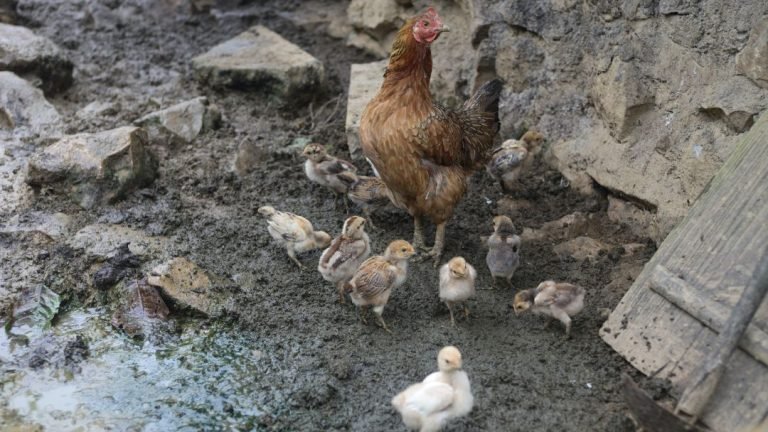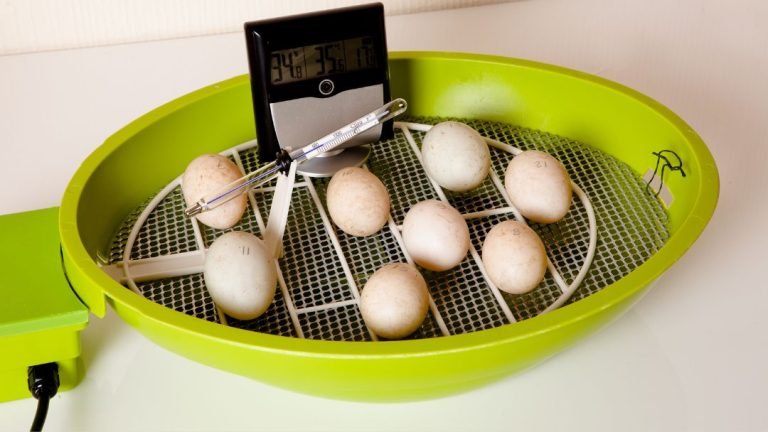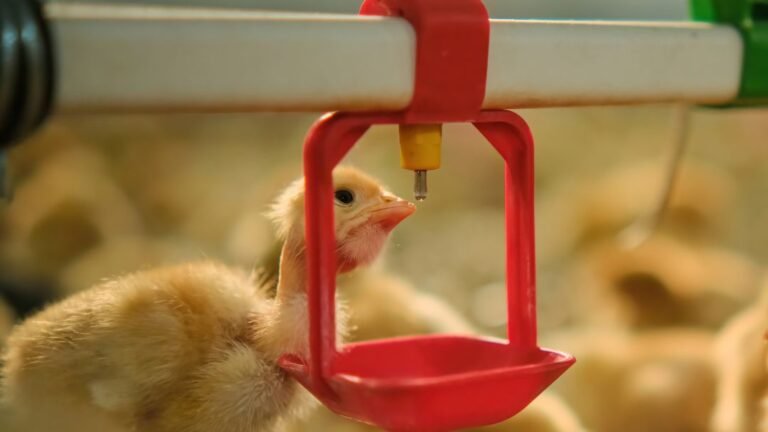Scaly leg mites in chickens cause symptoms like leg scales lifting and swelling. Prompt treatment is essential.
Scaly leg mites are a common parasite that affects chickens, causing discomfort and potential health issues. Recognizing the symptoms is crucial for early detection and effective treatment. Affected chickens will experience a lifting of scales on their legs, which can lead to swelling, scabs, and even lameness if left untreated.
These mites burrow under the leg scales, causing irritation and inflammation. Fortunately, there are several treatment options available to eradicate these pesky mites, ranging from natural remedies to commercial products. We will explore the symptoms of scaly leg mites in chickens and discuss various treatment methods to help your flock maintain healthy and happy legs.
Understanding Scaly Leg Mites And Their Impact On Chickens
Scaly leg mites are tiny parasites that can cause significant discomfort and health issues for chickens. These mites burrow beneath the scales on a chicken’s legs, causing them to become raised, crusty, and painful. If left untreated, scaly leg mites can lead to serious complications and even death in severe cases. Learning how to identify the signs and symptoms of scaly leg mites in chickens is crucial for early detection and effective treatment.
What Are Scaly Leg Mites And How Do They Affect Chickens?
Scaly leg mites, scientifically known as Knemidocoptes mutans, are microscopic arachnids that infest chickens’ legs and feet. These mites burrow into the skin, causing inflammation and thickening of the leg scales. As the infestation progresses, the scales become raised, rough, and start to flake off. This leads to discomfort for the affected chickens, as their legs may become itchy, sore, and prone to infection.
Did you know? Scaly leg mites are highly contagious and can spread from chicken to chicken through direct contact or by sharing contaminated roosting areas and equipment.
Identifying The Signs And Symptoms Of Scaly Leg Mites In Chickens
Recognizing the signs of scaly leg mites is essential for early intervention and preventing the infestation from spreading. Here are the common signs and symptoms to look out for:
- Thickened and raised scales: Infected chickens will have leg and foot scales that appear swollen, raised, and irregular.
- Crusty and brittle scales: The scales affected by scaly leg mites will become dry, crusty, and may start to crack or flake off.
- Leg and foot deformities: In advanced stages, scaly leg mites can cause deformities in the legs and feet, leading to difficulties walking, perching, and overall mobility for the chickens.
- Feather loss and decreased activity: Affected chickens may show signs of decreased activity, lethargy, feather loss, and a general decline in health.
The Risks And Consequences Of Untreated Scaly Leg Mites
Leaving scaly leg mites untreated can have severe consequences for your chickens’ well-being. If not properly managed, scaly leg mites can lead to:
- Infections: The cracked and damaged skin caused by scaly leg mites provides an entry point for bacteria and fungi, increasing the likelihood of infections.
- Malnutrition: Infected chickens may experience a loss of appetite due to discomfort and reduced mobility, leading to malnutrition and weight loss.
- Reduced egg production: Chickens with untreated scaly leg mites may experience a decline in egg production, causing losses for backyard flock owners.
- Pain and suffering: The constant itchiness, pain, and general discomfort caused by scaly leg mites can significantly impact a chicken’s quality of life, restricting their movement and leading to a decreased overall well-being.
It is crucial to promptly address scaly leg mites in your chickens to protect their health and prevent the infestation from spreading to other members of the flock. In the next section, we will explore effective treatment options for managing scaly leg mites in chickens.
Taking Preventative Measures To Avoid Scaly Leg Mites
Taking preventative measures to avoid scaly leg mites is crucial for maintaining the health and well-being of your chickens. Scaly leg mites, also known as Knemidocoptes mutans, are tiny parasites that burrow beneath the scales on a chicken’s legs, causing discomfort and potentially leading to more serious issues if left untreated. Implementing preventive strategies can help protect your flock from these pesky mites. In this article, we’ll explore some effective methods you can employ to keep your chickens safe and free from scaly leg mites.
Creating A Clean And Hygienic Coop Environment
One of the fundamental steps in preventing scaly leg mites infestation is maintaining a clean and hygienic coop environment. Scaly leg mites thrive in dirty, damp conditions, so by keeping the coop clean, you can significantly reduce the risk of an infestation. Here are some key steps to consider:
- Regularly remove droppings and soiled bedding from the coop.
- Ensure proper ventilation to reduce moisture buildup.
- Promote cleanliness by scrubbing and disinfecting the coop regularly.
- Regularly check for any cracks or crevices in the coop that may provide hiding spots for mites.
By following these guidelines, you’ll create an environment that is less conducive to mite infestations, making it harder for the mites to survive and reproduce.
Implementing Regular Health Checks And Inspections
To detect scaly leg mites early on and prevent them from spreading, it’s essential to conduct regular health checks and inspections on your chickens. Here’s what you can do to ensure your flock remains mite-free:
- Regularly examine your chickens’ legs for any signs of scaling, crusting, or raised scales.
- Look for increased scratching or irritation around the leg and foot area.
- Inspect the coop for any signs of mite infestation, such as red mites crawling on surfaces.
- Isolate and treat any birds showing symptoms immediately to prevent the mites from spreading to other chickens.
By incorporating regular health checks and inspections into your routine, you’ll be able to catch any signs of scaly leg mites early on, enabling you to take swift action and prevent the infestation from worsening.
Incorporating Natural Remedies For Mite Prevention
Using natural remedies can be an effective way to prevent scaly leg mites without relying heavily on chemical treatments. Here are some natural remedies you can incorporate into your mite prevention strategy:
- Dust the coop and your chickens with diatomaceous earth, a natural powder that works by dehydrating and killing mites.
- Apply a mixture of neem oil and coconut oil to the legs of your chickens, as these oils have natural insecticidal properties.
- Consider planting herbs like lavender, mint, and rosemary near the coop, as their strong scents can repel mites.
Incorporating these natural remedies into your mite prevention plan can provide an extra layer of protection for your flock and reduce the likelihood of scaly leg mite infestation.
Effective Treatment Options For Scaly Leg Mites In Chickens
When it comes to treating scaly leg mites in chickens, it’s important to use effective treatment options to eradicate these pesky parasites. Various methods can be employed to eliminate scaly leg mites from your flock, ranging from topical treatments and ointments to medicated baths and oral medications for severe infestations.
Administering Topical Treatments And Ointments
One effective treatment option for scaly leg mites in chickens is the use of topical treatments and ointments. These products are specifically formulated to target and eliminate the mites, providing relief for the affected birds. Topical treatments often contain active ingredients such as sulfur, petroleum jelly, or vegetable oil, which suffocate and eradicate the mites.
When applying topical treatments or ointments, it’s important to ensure thorough coverage of the affected areas. Gently rub the solution onto the legs and feet, making sure to reach all the scales and crevices where the mites reside. Repeat the application as recommended by the product instructions, typically every few days or as necessary until the infestation is fully resolved.
The Role Of Medicated Baths In Mite Eradication
Another effective approach to treating scaly leg mites is through the use of medicated baths. Medicated baths can help eliminate mites by drowning and suffocating them, providing relief for the chickens. These baths often consist of specific solutions that are mixed with water.
To administer a medicated bath, prepare a large container or a shallow pond with enough water to submerge the bird’s legs. Add the recommended amount of the medicated solution to the water and gently place the affected chicken in the bath. Allow the bird to soak for the specified duration, ensuring that its legs are fully submerged. Repeat the process as necessary until the infestation is eliminated.
Utilizing Oral Medications For Severe Infestations
In severe cases of scaly leg mite infestations, oral medications can be utilized to target and eradicate the parasites internally.
Oral medications are usually prescribed to chickens with a severe infestation that hasn’t responded to topical treatments or medicated baths. These medications come in the form of powders or liquids and are administered orally, either mixed in the bird’s drinking water or applied directly into the beak.
It’s important to follow the instructions given by the veterinarian or the product manufacturer when administering oral medications. Ensure that the proper dosage is administered and continue treatment for the recommended duration to ensure the mites are fully eradicated.
Natural Remedies For Relief From Scaly Leg Mites
Scaly leg mites are a common problem that can affect chickens of all breeds and ages. These microscopic parasites burrow under the scales on a chicken’s legs, causing irritation, inflammation, and discomfort. If left untreated, scaly leg mites can lead to serious infection and even lameness. While there are chemical treatments available, many poultry owners prefer to use natural remedies to alleviate their chickens’ discomfort. In this article, we will explore some effective natural remedies for relief from scaly leg mites.
Exploring Organic Solutions And Home Remedies
Organic solutions and home remedies can be an effective alternative to chemical treatments for scaly leg mites. Not only are these remedies often readily available, but they also offer a more natural approach to managing mite infestations.
Some popular organic solutions for scaly leg mites include:
- Coconut oil: Infused with antibacterial and antifungal properties, coconut oil can help soothe the affected areas and suffocate the mites.
- Apple cider vinegar: Diluting apple cider vinegar with water and applying it to the legs can help kill the mites and reduce inflammation.
- Diatomaceous earth: This fine powder is made from fossilized algae and works by absorbing the protective waxy coating of the mites, ultimately leading to their dehydration and death.
- Petroleum jelly: Applying a thin layer of petroleum jelly to the legs can create a barrier that suffocates the mites and prevents further infestation.
Essential Oils And Their Effectiveness In Mite Removal
Essential oils have gained popularity in the treatment of various health conditions in recent years. When it comes to scaly leg mites, certain essential oils have shown promising results in eradicating these bothersome parasites.
Some essential oils that have been found effective in removing scaly leg mites include:
- Tea tree oil: With its powerful antifungal and antiparasitic properties, tea tree oil can help kill the mites and alleviate the accompanying symptoms.
- Lavender oil: Known for its soothing properties, lavender oil can provide relief from the itchiness and irritation caused by scaly leg mites.
- Neem oil: This oil has natural pesticidal properties and can help eliminate mites, as well as prevent further infestations.
Incorporating Dietary Supplements To Improve Overall Skin Health
Proper nutrition plays a vital role in maintaining the overall health of chickens, including their skin and feathers. By incorporating certain dietary supplements, you can boost your flock’s skin health and potentially prevent scaly leg mites from taking hold.
Some dietary supplements that can improve overall skin health in chickens include:
- Biotin: Biotin is a B-vitamin that promotes healthy skin and feathers. Adding biotin-rich foods or supplements to your chickens’ diet can help strengthen their skin’s natural defenses against mites.
- Zinc: Zinc plays a crucial role in maintaining healthy skin. Including zinc-rich foods or supplements in your chickens’ diet can support their skin health and reduce the likelihood of mite infestations.
- Omega-3 fatty acids: Omega-3 fatty acids have anti-inflammatory properties and can improve the overall health of the skin. Feeding your chickens an omega-3 rich diet can help alleviate the irritation caused by scaly leg mites.
When dealing with scaly leg mites, it’s important to closely monitor your chickens’ progress and consult with a veterinarian if necessary. Combining these natural remedies with proper husbandry practices can help provide relief from scaly leg mites and promote the overall well-being of your flock.
Providing Comfort And Care For Chickens Infected With Scaly Leg Mites
Creating A Comfortable Environment To Support Healing
In order to provide the best care for chickens infected with scaly leg mites, it is crucial to create a comfortable environment that promotes healing. By addressing the underlying cause of the infestation and implementing the following measures, you can ensure your chickens’ well-being and aid in their recovery.
- 1. Isolate infected chickens: First and foremost, isolate any chickens that have been diagnosed with scaly leg mites to prevent the infestation from spreading to the rest of your flock.
- 2. Clean and disinfect coop: Thoroughly clean and disinfect the chicken coop to eliminate any remaining mites or eggs. Pay close attention to areas where mites are likely to hide, such as under perches and in cracks and crevices.
- 3. Provide clean bedding: Replace old bedding with fresh, clean material to maintain a hygienic environment and reduce the risk of reinfection.
- 4. Optimize temperature and humidity: Chickens infected with scaly leg mites may be more sensitive to extreme temperatures. Ensure the coop remains at a comfortable temperature range and avoid excessive humidity, as it can worsen the condition and create favorable conditions for mites.
- 5. Offer perching options: Provide perches of varying heights and widths to reduce pressure on infected legs and encourage better circulation.
- 6. Apply moisturizing agents: Moisturizing the legs with natural remedies like petroleum jelly or vegetable oil can help soften the crusty scales and alleviate discomfort.
Minimizing Stress To Help Chickens Recover Faster
Reducing stress is essential for chickens infected with scaly leg mites as it allows their immune system to focus on healing. Follow these tips to minimize stress and support a faster recovery:
- 1. Handle chickens gently: Avoid unnecessary handling or rough treatment, as it can further agitate and stress the chickens.
- 2. Limit encounters with predators: Keep chickens protected from potential predators to minimize fear and anxiety.
- 3. Maintain a consistent routine: Stick to a regular feeding, watering, and cleaning schedule to provide predictability and security.
- 4. Avoid overcrowding: Ensure chickens have ample space inside the coop and in the outdoor area to reduce competition and aggression, which can add stress to already vulnerable birds.
- 5. Reduce loud noises: Loud noises can startle chickens and cause unnecessary stress; try to keep the surrounding environment as quiet as possible.
Ensuring Proper Nutrition And Hydration During Treatment
Proper nutrition and hydration are crucial for chickens infected with scaly leg mites, as a strong immune system aids in the healing process. To ensure your chickens receive the necessary nutrients and hydration, consider the following:
- 1. Provide a balanced diet: Feed your chickens a well-balanced diet consisting of high-quality chicken feed supplemented with fresh fruits and vegetables. This will provide essential vitamins and minerals.
- 2. Encourage water consumption: Ensure chickens have access to clean, fresh water at all times. Dehydration can further weaken their immune system and hinder the healing process.
- 3. Add immune-boosting supplements: Consider adding natural immune-boosting supplements, such as probiotics or garlic, to their diet to strengthen their immune response.
- 4. Monitor their appetite: Keep an eye on each chicken’s appetite and adjust their feed accordingly. If any chickens show a lack of interest in food, consult a veterinarian for further guidance.
Conclusion
Recognizing the symptoms of scaly leg mites in chickens is crucial for their well-being. Early intervention and treatment, such as applying remedies like petroleum jelly or natural oils, can alleviate the discomfort caused by these parasites. Ensuring proper hygiene and implementing preventative measures can help prevent future infestations.
By staying vigilant and taking prompt action, you can keep your chickens healthy and happy. Stay informed and proactive in maintaining the overall health of your flock.



